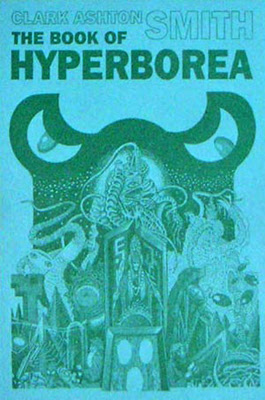Examining Cthulhu Mythos Tales Through a Pulp Lens
As I embark on a Pulp Cthulhu game, albeit one set in the late Victorian era, I've been thinking about what really differs between a pulp-oriented game vs. a purist one.
The answer is surprisingly flexible. There is a style of play that embraces the belief that all the characters are, quite simply, doomed. They are in a race between dying, going insane, or living long enough to see the end of the world. And Lovecraft certainly wrote a number of stories in that way - "Dagon" comes to mind quite readily. On the other hand, in many ways "The Shadow Over Innsmouth" has a strong touch of pulp - a narrator who makes a hair-raising escape, leaping out windows, hiding from pursuit, etc. One can expand to members of his writing circle like Robert E. Howard and Clark Ashton Smith, both of whom have told tales of action in the same cosmos that Lovecraft defined.
I think Lovecraft's letter to Farnsworth Wright in July of 1 1927 sets a good agenda for what a tale of the Mythos is:
Now all my tales are based on the fundamental premise that common human laws and interests and emotions have no validity or significance in the vast cosmos-at-large. To me there is nothing but puerility in a tale in which the human form—and the local human passions and conditions and standards—are depicted as native to other worlds or other universes. To achieve the essence of real externality, whether of time or space or dimension, one must forget that such things as organic life, good and evil, love and hate, and all such local attributes of a negligible and temporary race called mankind, have any existence at all.Similarly, "The Call of Cthulhu" begins with a fantastic mission statement:
The most merciful thing in the world, I think, is the inability of the human mind to correlate all its contents. We live on a placid island of ignorance in the midst of black seas of infinity, and it was not meant that we should voyage far. The sciences, each straining in its own direction, have hitherto harmed us little; but some day the piecing together of dissociated knowledge will open up such terrifying vistas of reality, and of our frightful position therein, that we shall either go mad from the revelation or flee from the deadly light into the peace and safety of a new dark age.
The central premise is humanity lives in a cosmos that holds secrets beyond our comprehension. It isn't a cosmos which hates us - it just doesn't care. Though Star Trek: The Next Generation has a far more optimistic viewpoint than Lovecraft, the episode "Q Who" has a line which approaches him:
If you can't take a little bloody nose, maybe you ought to go back home and crawl under your bed. It's not safe out here. It's wondrous, with treasures to satiate desires both subtle and gross. But it's not for the timid.
None of this has anything to do with whether the characters in an adventure succeed or not. The odds may be poor, but the universe doesn't care enough to hate the characters either. Which means with care and luck, our protagonists may win the day. Pulp Cthulhu seems well-suited to upping the odds of the characters winning the day. Having completed with a player the final character, I've got a good vision for what these characters are capable of. Compared to a standard Call of Cthulhu character, each and every one of them is pretty bad-ass. For example, the priest of the group has some impressive physical stats, giving him 28 hit points, a number standard players could only dream of. Against humans or Deep Ones that will help a lot. Against a Formless Spawn that can swallow a character whole, not so much.






Comments
Post a Comment